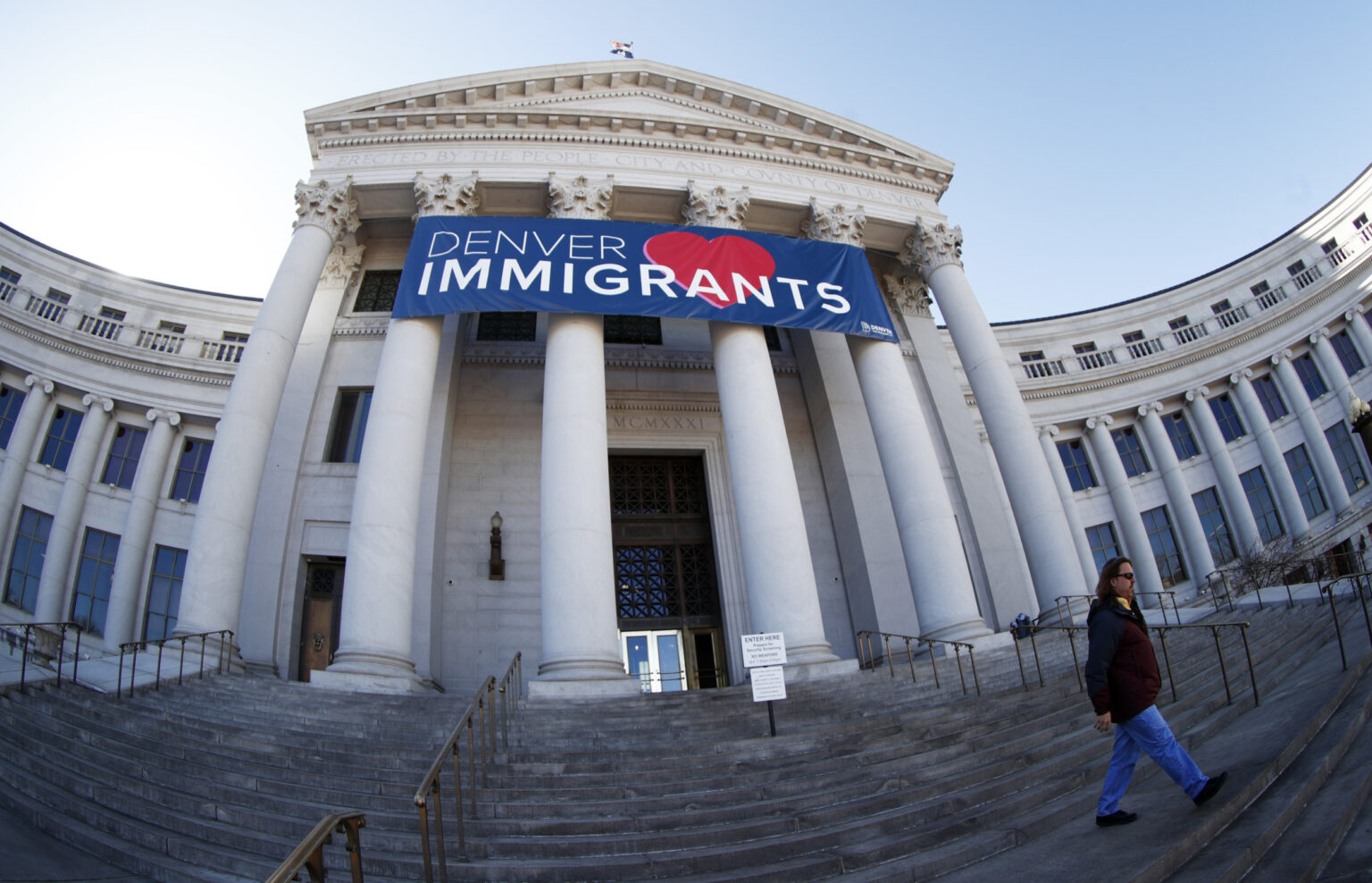A Colorado sheriff’s deputy is facing a lawsuit from the state’s attorney general over allegations that he aided federal immigration agents in the arrest of a college student with an expired visa.
Deputy Alexander Zwinck of the Mesa County Sheriff’s Office has been accused of unlawfully sharing the student’s personal information with federal agents, according to a lawsuit filed by Attorney General Phil Weiser.
“State law specifies that Colorado law enforcement officers are dedicated to enforcing Colorado law and do not do the work of the federal government to enforce immigration law,” Weiser said a statement.
Newsweek has contacted the Mesa County Sheriff’s Office for comment via email outside office hours.
Why It Matters
President Donald Trump has directed his administration to remove millions of migrants without legal status to fulfill his campaign pledge of widespread mass deportations. The White House has maintained that anyone living in the country unlawfully is considered to be a criminal.
Colorado and Denver have enacted sanctuary laws designed to limit local cooperation with federal immigration enforcement. These laws seek to protect undocumented immigrants by restricting the sharing of personal information with federal authorities and preventing local law enforcement from assisting in immigration arrests. Critics argue that sanctuary laws impede immigration enforcement operations.
What To Know
Zwinck allegedly shared personal information about a 19‑year‑old Utah nursing student—including her driver’s license, vehicle registration and insurance—via a Signal group chat used by a regional drug task force that included Homeland Security Investigations personnel.
On June 5, Caroline Dias Goncalves was pulled over by police in Fruita, Colorado, while on her way to Denver. Shortly after being let go by the officer, she was stopped again a few miles away in Grand Junction—this time by immigration agents.
After learning from federal immigration officers in a group chat that the student had no criminal record but was in the country on an expired visa, Zwinck allegedly directed her to remain in his patrol car for about five minutes, questioning her about her accent and place of birth. According to the lawsuit, he then let her go with a warning but informed the agents of her vehicle description and travel direction, enabling them to intercept and arrest her.
Zwinck apparently responded to news of the arrest with “rgr, nice work,” and an ICE agent praised him as “interdictor of the year.”
On June 10, Zwinck allegedly repeated similar actions, sharing another individual’s driver’s license photo, vehicle details and location to assist with an immigration arrest. When informed that the person was wanted by ICE, Zwinck allegedly quipped, “We better get some b****in Christmas baskets from you guys,” according to the lawsuit.
Zwinck has been placed on paid administrative leave pending the conclusion of an internal review by the Mesa County Sheriff’s Office.
The sheriff’s office previously said all its employees were removed from the Signal group chat involved in the incident.
Meanwhile, the Department of Justice (DOJ) has filed a lawsuit against Colorado and the city of Denver, challenging what it calls sanctuary policies that it says obstruct federal immigration enforcement.
In a complaint filed in May in the U.S. District Court in Colorado, federal officials argued that the state’s and city’s laws were intentionally crafted to hinder and discriminate against federal immigration authorities, violating the U.S. Constitution.
The DOJ said the policies prevented cooperation with federal agents and undermined national immigration enforcement efforts.
In 2019, Colorado passed House Bill 19-1124, which prohibits law enforcement from detaining individuals solely based on federal immigration detainers and restricts sharing personal information with federal immigration authorities without a court order.
What People Are Saying
Attorney General Phil Weiser said in a news release: “In this case, the driver was detained by immigration authorities because of actions by Colorado law enforcement despite the absence of any criminal activity on her part. Her detention for over two weeks is directly due to this violation of Colorado’s laws. Because of this action, we are making clear that Colorado law enforcement’s role is to advance public safety, not take on the responsibility of doing the work of federal immigration enforcement.
Read the full article here


